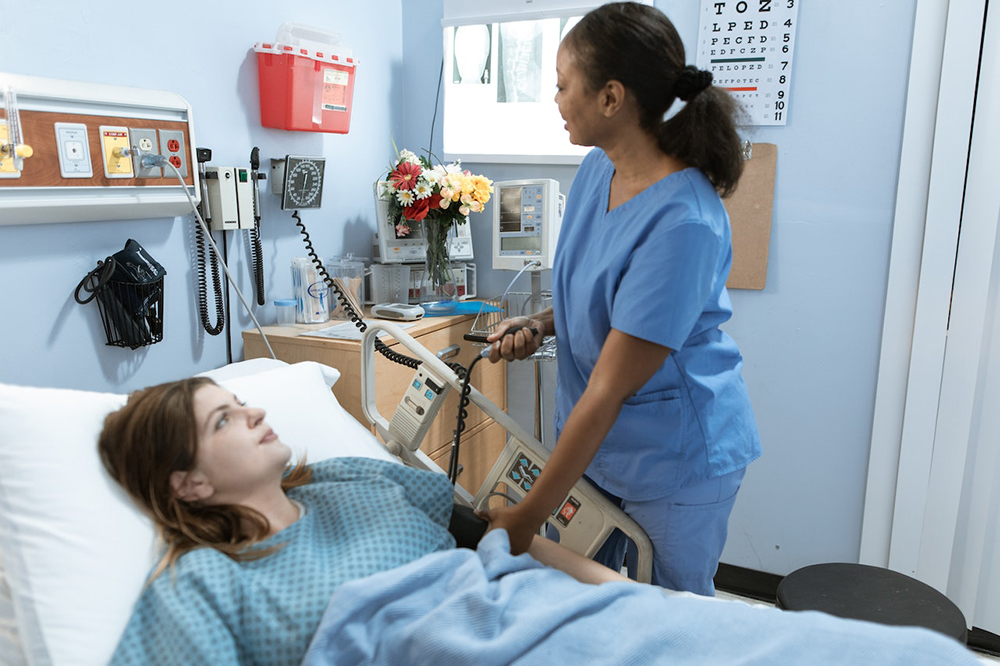
Data compiled by the Centers for Disease Control and Prevention (CDC) shows that in 2020, there were 131.3 million visits made to U.S. emergency rooms. At least 38 million of those visits stemmed from injury-related events. And of all patient encounters, at least 18.6 million of those visits ended up with a patient being admitted to the hospital. Statistics show that 3.1 million of those admissions were critical care ones.
While the health of some patients who are admitted to hospitals is so serious that they require life-saving measures to survive, others may improve by receiving skilled and dedicated care. In the case of the latter, some patients are admitted to the hospital suffering from a condition that should improve in time; however, their situation worsens during their stay. Below, we discuss what types of errors happen and how to prevent mistakes when staying in a hospital.
Common Mistakes That Happen in Hospitals (And Reasons They Occur)
There are a few mistakes that, in our experience handling medical malpractice cases, are more common than others:
The Onset of Hospital-Acquired Infection
As mentioned above, individuals present themselves in Kentucky hospitals suffering from all different types of conditions, including communicable diseases. Cleanliness is of optimal importance in these facilities; however, a number of factors, including the following, can result in the unnecessary spread of disease and the emergence of preventable infections:
- The implementation of an ineffective cleaning protocol by hospital administrators
- Limited access to the correct cleaning supplies
- Ineffective training of janitorial staff
- Inadequate supervision of custodial employees
- Limited staffing, meaning employees cut corners to get their work done
It’s important to note that infection control involves much more than cleaning patient rooms and common areas, like emergency room waiting rooms, hallways, bathrooms, and cafeterias. It goes beyond what meets the eye, such as cleaning air conditioning coils and water lines or ensuring that high-grade filters are being used and regularly replaced.
Slips and Falls
A slip and fall incident may not readily come to mind if you were tasked with highlighting preventable mistakes that could be prevented in hospitals, but they should. These incidents often occur because an individual who’s feeling unstable on their feet due to a physical impairment or who is otherwise unwell feels they’d be better off getting up to go to the bathroom or to grab something across the room instead of calling for help to assist them in doing so.
Reasons hospital patients may feel inclined to take matters into their own hands include:
- Because there’s limited nursing staff on hand to assist them
- They aren’t impressed by a caregiver’s bedside manner
As you might imagine, slips and falls can result in a further deterioration of a patient’s condition. For example, a patient may have been admitted to the hospital suffering from pneumonia, only to suffer a broken hip as they lose their footing while attempting to navigate their hospital room on their own.
Medication Errors
There are various individuals who may be involved in the supply chain responsible for handling the drugs before they get to you. Those persons and the potential mistakes they may make include the following:
- Doctors: They’re generally the ones in the hospital who evaluate patients and review vital signs before assigning diagnoses and treatments, including medications, to address them. If they don’t ask the right questions to reach the correct diagnosis or to ensure a patient isn’t allergic to it and that there are no other contraindications present, then a patient’s health and safety may ultimately be put at risk.
- The pharmacist: This professional may be responsible for compounding a special formulation of drugs that your doctor orders or for dispersing the correct medication at the proper dosage as ordered by a doctor. A pharmacist may be so overworked that they disperse the wrong drug or the incorrect dosage of it, putting any patient who consumes it at significant risk of harm.
- An anesthesiologist: A patient that is being prepared to undergo surgery will generally have an anesthesiologist take into account their age, weight, allergies, length of surgery, and other factors to determine the appropriate dosage a person should receive for the specific procedure that will allow them to easily wake up in the end. One incorrect miscalculation could result in a patient being intravenously administered the wrong dosage of it.
- Nurses: These health care professionals are generally the ones responsible for administering prescribed medications to patients. Incorrect charting of administered doses may result in a patient receiving more drugs than they should. Not double-checking the drug administered may leave a patient where they get a different medication from what they should have.
While the examples above are not comprehensive in terms of all the ways a hospital patient in Lexington, KY may end up falling victim to a medication error, they give some insight into ways such a phenomenon can happen. In each of these cases, the common element is that these mistakes are largely preventable.
Diagnostic Errors
Physicians like emergency room ones aren’t your primary care doctors. They likely don’t know anything about you and your health aside from the little you tell them in the hospital. This can lead to diagnostic errors. So too, can a radiologist’s reading of your X-rays if they’re tired, busy, or pressured to go through those images quickly.
Surgical Errors
While we’ve already brought up the potential for anesthesia errors and some reasons that outcome may occur, there may also be issues once the surgery is in progress too. If the surgical team isn’t closely monitoring a patient’s vitals, for example, then they could end up deprived of oxygen, bleed out, or experience other irreversible adverse reactions.
Additionally, surgical tools and supplies could be left in a patient. It’s possible that a surgeon could also perform the right procedure on the wrong patient, or operate on the incorrect body part or side of the body of the correct person. Medical literature calls these “never events” in that they’re completely preventable.
Childbirth Injuries
Women head to the hospital in labor, expecting the childbirth process to go smoothly, yet they or their babies end up getting hurt during this routine procedure. This outcome often happens when nurses or obstetricians fail to adequately monitor a pregnant mother’s or their baby’s vital signs or they utilize inappropriate tactics or assistive devices incorrectly to deliver the newborn.
Steps You Can Take as a Patient To Prevent Hospital Errors
So, now that you’re aware of the different types of errors that are most common in hospitals, let’s go over steps you can take to minimize the chances of you being affected by them.
Communication Is Key
We can’t stress the value of communication enough. It’s always best to ask to make sure a doctor heard you, to verify you’re receiving the right drug, to confirm a nurse sees your alarming vital signs, and so forth if you feel something isn’t right. After all, you’re your best advocate. Sometimes asking questions forces the medical provider tending to you to reevaluate their actions—an extra step that could prevent you from suffering unnecessary harm and ultimately save your life.
Demanding a Refresh or Clean Up
If you have reason to believe that your hospital room, a surgical suite, or any medical tools, equipment, or supplies aren’t hygienic, then bring it up. Ask that the ones that they’re preparing to use on you be switched out. While doing so may cause you to incur added expenses, your health and life are more valuable than the harm an infection may cause you.
Request a Second Opinion
You’ve perhaps heard about private doctors in an outpatient setting making diagnostic errors, but it can happen in a hospital setting too. If you’re uncomfortable with a diagnosis and the treatment options being presented to you, ask to have another doctor assess you and give their opinion on the treatment plan. Doing so could save you from receiving a treatment you don’t need that might cause permanent damage to your health.
Don’t Be Afraid To Ask for Assistance When You Need It
Keep in mind that the nurses and other providers are there to take care of you. If you’re in the hospital and bedridden, it’s likely because that’s what your doctors deem is best for you. Use your voice to request aid to move about as needed, as this could prevent the compounding of your illness with physical injuries, for example.
Enlist a Loved One To Advocate for You if You Can’t
While many hospital visits are unexpected, many patients appear in an emergency room accompanied by someone else. Enlist that person, whenever possible, to be an advocate that helps you ask questions and voice concerns with medical staff as they arise whenever possible.
What To Know About Preventable Medical Mistakes That Occur in Hospitals
Going to a doctor for a diagnosis, taking medication, undergoing a surgical procedure, enduring childbirth, staying in a hospital, and so forth all come with inherent risks. Patients can certainly cause themselves harm. Also, poor outcomes may occur without medical providers having done anything wrong.
There are at least 251,000 cases of preventable patient deaths that occur annually in the U.S., according to a study published by the National Institutes of Health (NIH). It’s likely that there are significantly more who suffer illnesses or injuries stemming from the same types of doctor errors and other medical negligence.
Fortunately, Kentucky law allows victims to hold those parties accountable who let them down. A medical malpractice lawyer at Peterson Law Office would be more than happy to explain how our state’s medical negligence laws work and your right to take legal action following such an incident during a free initial consultation.





